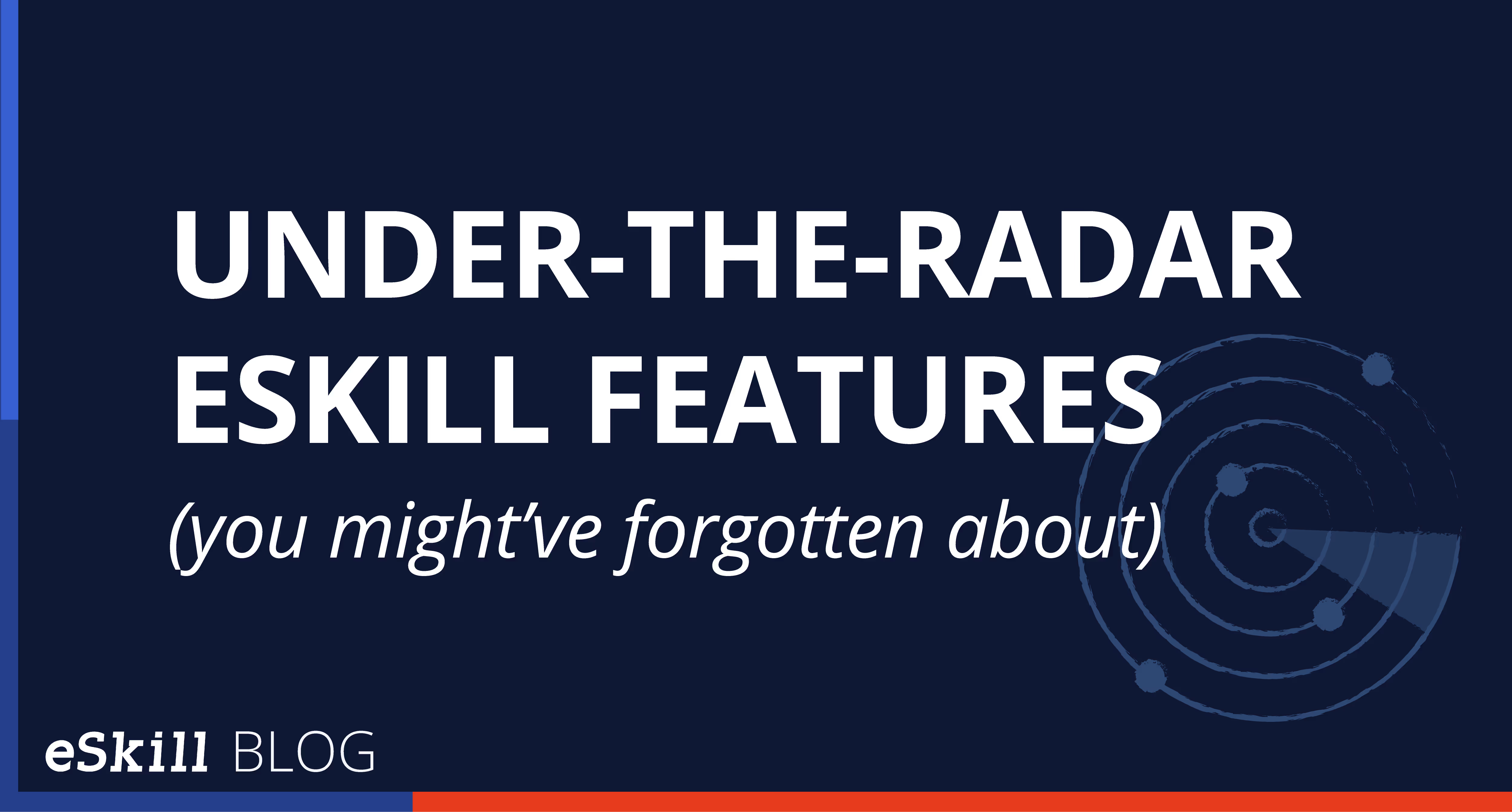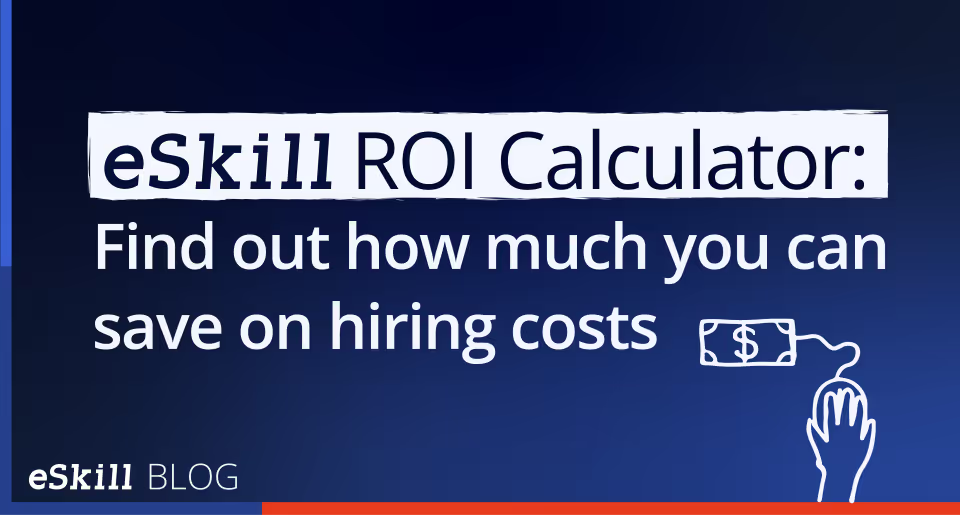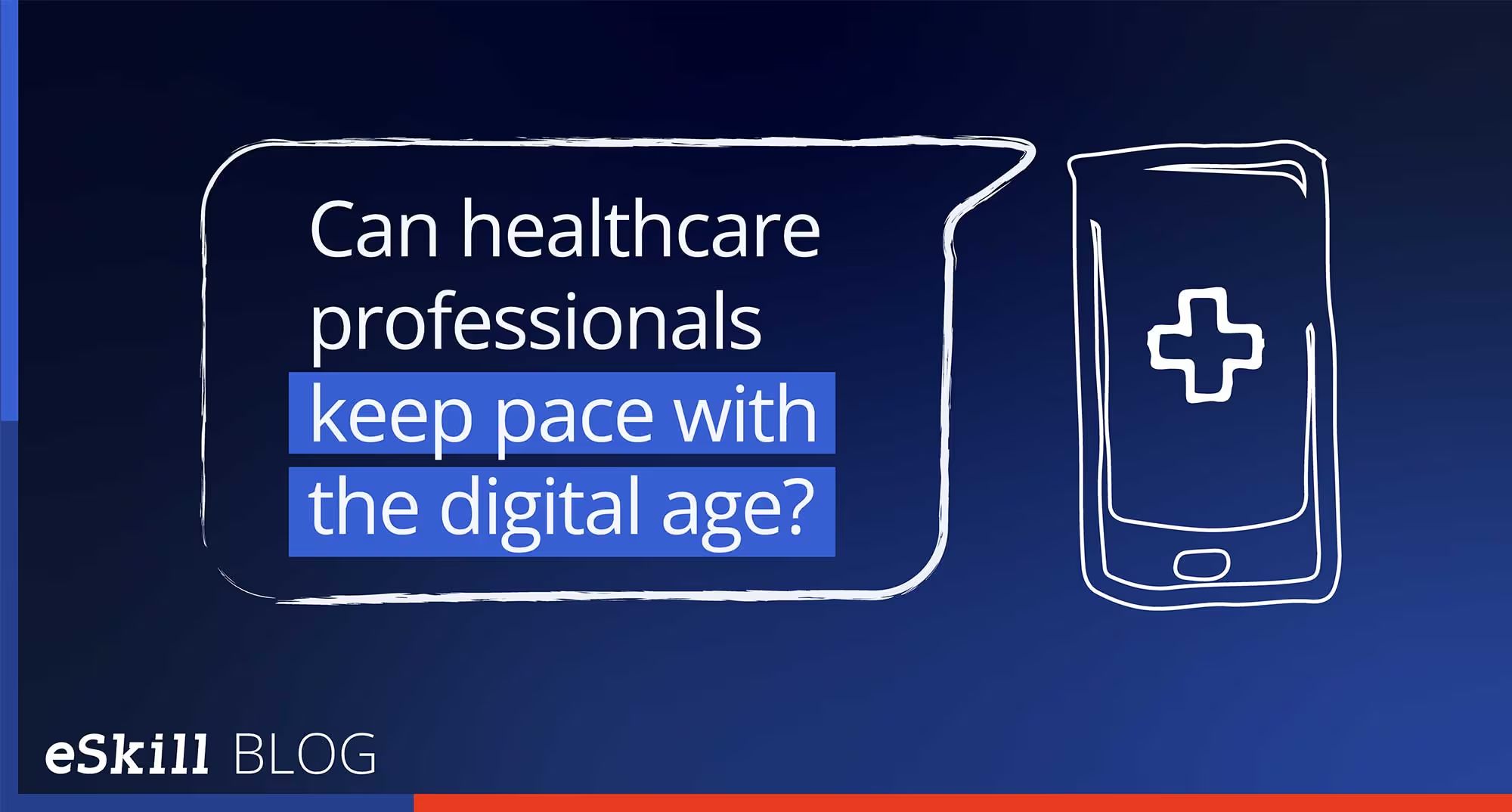The healthcare field is growing faster than most industries — and demand is outpacing supply. With a long time-to-hire and high turnover for most positions, how can you use pre-hire tests to find skilled candidates quickly, shorten time-to-hire, and retain proficient staff?
What you should know
- Using pre-hire assessments can help healthcare employers reduce turnover, streamline the hiring process, and ensure candidates are well-suited for specific roles, particularly in nursing and patient care positions.
- The healthcare industry is facing a major labor shortage because of an aging workforce, more demand for services, and high turnover rates, with 1.9 million openings projected annually until 2033 (US Bureau of Labor Statistics).
- The most effective pre-hire tests are job-specific assessments, such as those for registered nurses or medical billers, but additional tests like those focused on emotional intelligence, medical terminology, and digital skills can also make for better hiring results.
Imagine walking into a bustling hospital waiting room. Every seat is filled; the phone is ringing off the hook. Nurses dart from one patient to the next. The wait stretches for hours. You finally get into your appointment room — and after another long wait, you’re briefly attended to, then ushered out the door. You look down at what you’ve received. It’s the wrong prescription.
No, this isn’t a scene from Grey’s Anatomy. It could soon be the reality for the healthcare industry — and in many ways, it already is.
The healthcare field is projected to grow at a far faster pace than most industries, with demand for services outpacing the supply of skilled professionals for the foreseeable future. With many healthcare facilities facing the threat of being short-staffed or hiring unqualified personnel, poor care and adverse outcomes for patients are a looming threat to the field.
And it’s not just doctors and nurses that are understaffed. Medical coders, janitorial services, agents at call centers, patient care technicians, and other roles vital to the functioning of a hospital all face the risk of vacancy.
According to the US Bureau of Labor Statistics, about 1.9 million openings are projected each year in healthcare between now and 2033, much faster than the average rate for all occupations. In April alone, the healthcare industry added 51,000 jobs.
Couple that with high turnover rates, a long time-to-hire for most healthcare positions, and increases in the geriatric population and chronic conditions boosting demand — making healthcare facilities scramble to fill roles — and recruitment in the field comes out to be both costly and rarely failsafe.
Nursing Solutions, Inc., a national nurse recruitment firm, hints at a major crisis of nursing shortages — projected in the hundreds of thousands — as people live longer and baby boomers retire.
With a long time-to-hire for most positions and a pressing demand for workers, how can hospitals and healthcare recruiters find good staff quickly? And with a high turnover rate impacting costs, how do they also make sure the staff they do hire stick around?
Pre-hire assessments may not be the end-all be-all of fixing the healthcare worker shortage, but they help. And with individual companies struggling in what’s already a global crisis, pre-hire assessments can help recruiters find the right staff for healthcare facilities before competitors do, and increase their chances of staying.
The most in-demand healthcare positions
According to LinkedIn, 7 of the 10 most in-demand healthcare jobs on the platform in Q1 2024 were nursing jobs. The US News & World Report chose Nurse Practitioner is the #1 job of 2025. And by share of revenue, the travel nurse segment was the dominant segment in the healthcare staffing market in 2024.
While nurses may lead the market in both demand and revenue, other roles are also highly in demand, like Medical Assistants (#4 on LinkedIn’s list), Physical Therapists (#5), and Patient Care Technicians (#6). Hospital support staff — like medical coders, maintenance workers, and outpatient schedulers — are also critical to smooth hospital operations.
And in fields with extremely high turnover, like nursing homes (which can see over 50% of staff turnover in a year), finding the right home health aides for the position can be essential to keeping recruitment and turnover costs low. After all, turnover accounts for some of the highest costs faced by companies.
What the stats say
We’ve said this before, but it bears repeating: demand continues to outpace supply in the healthcare labor market — and that’s a problem. Here are the major reasons why.
Aging workforce
Only about half of healthcare job applicants were under the age of 35 this year, compared to about 64% in other fields. And because all baby boomers are slated to retire by the year 2030, nursing shortages will continue to squeeze the industry. A retiring workforce of skilled, knowledgeable nurses and an uptick in lifespans will put an even greater bind on the healthcare workforce. In fact, by 2030, 42 states are expected to experience nursing shortages.
Hiring demands
The biggest demands in the healthcare field include roles for registered nurses (RNs), nursing assistants, medical assistants, and physical therapists. The fastest growing roles, however, are for care coordinators, patient access representatives, and dietary aides.
With high times-to-hire for many of these roles and demand outpacing supply, staffing agencies are attempting to fill the gap.
As for the staffing market — agencies and the like — the market was valued at $18.6 billion in 2024 and is expected to reach $36.38 billion by 2034, growing at a CAGR of 6.28%. Staffing agencies, like healthcare facilities themselves, need a way to find and hire adept, capable nursing and healthcare staff. After all, many healthcare facilities rely on staffing agencies to provide qualified healthcare personnel, whether in the short or long term, especially in moments of high staffing needs or emergencies.
Long time-to-hire
Time-to-hire for RNs is about 83 days, and for other roles, it can be even longer. With a high turnover rate (exceeding 100% of staff in the course of five years), a long time-to-hire can put an even greater squeeze on healthcare workers already on staff, and hospitals expend even greater costs on costly travel nurses and locum tenens (temporary physician substitutes) positions.
Healthcare turnover rates
Healthcare typically experiences around a 20% yearly turnover rate, but the turnover rate in specific fields — like nursing homes — can reach as high as 50%.
Turnover in any industry is costly. For a staff RN, the average cost of a turnover is around $60,000. According to NSI, acute care hospitals lost almost $5 million in 2024 due to RN turnover. Each percentage point change in RN turnover can cost — or save — a hospital almost $300,000 annually.
The cost of high turnover isn’t just monetary. A high turnover rate and disruption of continuity of care is proven to have adverse effects on patient populations, and additionally impacts operational efficiency and staff morale.
Healthcare turnover & burnout
A key reason for turnover in the industry is burnout. Especially following the pandemic, burnout caused many nurses to leave their roles due to high workloads and demands. That, in addition with fair compensation and a supportive workplace environment, makes it essential to hire those who not only have the expertise for the role, but are the right fit for the demands and the culture of the positions they’re applying for.
This is not to say compensation and work-life balance aren’t important — but hospitals, especially high-stress environments and wards like emergency and burn care, are, by their nature, stressful. You don’t just want to find an RN — you want one who is fit to work in their environment, whether they do better with children in pediatrics, the high-energy environment of the emergency room, or the local environment of a rural hospital.
Pre-hire assessments can help you test for not only medical knowledge, but for the right environmental fit for your hires.
Tech innovations
The healthcare field, like many others, is rapidly advancing when it comes to tech integrations. Telehealth is one of the biggest outcomes to come out of the growth and expansion of digital services, and as a result, means the need for digital skills for healthcare hires is also high. As of last year, over 70% of healthcare providers globally have integrated telemedicine. That, and the addition of tech-driven medical devices and electronic health record (EHR) software, make digital skills a need-to-have for healthcare hires.
So how do you vet for digital skills in a way that gives you a comprehensive view of what a potential employee knows, and where they need extra help?
Easy. Use a test.
Why use a pre-hire test?
Pre-hire tests have helped companies save on recruitment costs, find talent before their competitors, keep hired employees around longer, and of course, eliminate bad hires. When it comes to the revolving-door world of healthcare, pre-hire tests are a must to implement if you want to stay ahead.
One of eSkill’s clients in the healthcare field, for example, reduced time to hire by 40% while also improving hiring outcomes — streamlining their entire recruitment process.
Reduce turnover
Turnover is already a massive problem in healthcare. Hire somebody who isn’t ready for the role and can’t keep up, and turnover will increase — negatively impacting both hospital expenses and the quality of patient care.
Reduce the hiring of unskilled employees
Empathetic employees are key to supporting the vulnerable individuals in a hospital. In a field where demand is outpacing supply and where hiring individuals is crucial to patient outcomes, it can be easy to fill a position simply because it needs to be filled. But hiring the wrong candidate can be a critical mistake — both monetarily and when it comes to patient outcomes.
Streamline time-to-hire
The RN vacancy rate is nearly 10% in the US. The RN Recruitment Difficulty Index also determines that time to hire for an RN is about 83 days, or three months. Financially stressed institutions will need to control the high cost of labor and navigate their staffing shortages with contract work, but travel nurses are expensive, and in the long run, hospitals need to hire RNs to save on labor costs. Find the right fit for your position and your company by testing them and seeing where they would fit best.
The Top 5 Pre-Hire Tests
So, overall, what tests should be used? Healthcare positions need a combination of hard and soft skills. Hard skills include medical knowledge and digital skills, while soft skills can include emotional intelligence and bedside manners. For positions that interact with patients the most, like nurses, soft skills are equally important to hard skills.

- Clinical & Job-Specific Assessments
Job-specific assessments are the backbone of healthcare pre-hire assessments, which is why eSkill offers many, based on hyper-specific roles. With eSkill, you can test for a number of positions, including:
- Certified Medication Aide
- Certified Nursing Assistant
- Emergency Medical Technician
- Licensed Practical Nurse
- Medical Assistant
- Medical Biller
- Medical Records Clerk
- Patient Care Assistant
- Patient Access Associate
- Personal Care Aide
- Pharmacist
- Phlebotomist
- Physical Therapist
- Registered Nurse
- Physician Assistant
- Emergency Medical Technician
- And more
- Medical & Compliance Screenings and Terminology Tests
Is your staff well-informed of HIPAA guidelines? Are they aware of ethical standards in healthcare?
Test applicants’ knowledge of medical and HIPAA terminology as well as knowledge of healthcare protocols. Add accounting and bookkeeping abilities for your medical support staff. These skills-based questions combine to make the jobs of the role tests above — so whether you need a fully-put together job-oriented test or want to make your own from the composite pieces, you can do either.
- Emotional Intelligence Screenings, Behavioral Assessments, and Situational Judgment Tests
Bedside manners are one of the top needs for nurses, who interact with patients most. Being able to be attentive to this human-centered position is just as important as hard skills. That’s why emotional intelligence is key for nurses interacting with patients every day.
Situational Judgment Tests (SJTs) are another way you can test your candidates. Assess candidates’ job fit for a position and determine whether they will succeed in your corporate culture using Customer Service, Sales, Remote Leadership and Change Management SJTs.
- Call Center & Medical Billing Tests
The hospital’s job isn’t over once a patient is discharged. They still need to collect payment, schedule follow-up appointments, and maintain medical records for that patient. Medical billers and medically knowledgeable individuals employed at call centers are both needed in the network that makes up hospital care.
- Digital Skills Tests
Ensure your medical staff know how to use the software your team uses? According to one study, in 2022, less than 35% of healthcare workers reports having the necessary digital skills for workplace demands. Test for Excel, Microsoft Office, Epic and more. Especially with tech advancements in the field, knowing how to navigate a computer and software is absolutely essential to any healthcare role. This skill will be top of mind for employers as tech integrations in healthcare continue to advance.
Why eSkill?
So what pre-hire tests are best for healthcare? We’ve determined a general set of five — based on which healthcare positions and skills are most in demand this year. However, the pre-hire tests that are best for you are conditional on who you’re hiring for and what skills you need. eSkill offers customizable, specialized assessments that are flexible enough to help you find who you’re looking for — yet rigid enough to test for certified skills nursing and healthcare workers need to have.
With eSkill, you can test for multiple positions within the healthcare field, including for Certified Nursing Assistants, Emergency Medical Technicians, Patient Care Assistants, Medical Billers, and more.
You can also test by subject matter — including HIPAA guidelines, by software (Epic, Excel, Microsoft Office, and more), and by soft or hard skill, including emotional intelligence or medical terminology knowledge.
Customize your test to the position you’re hiring for, mixing-and-matching questions as needed, testing at either a basic or intermediate level, swap questions as you need, and keep what serves you and discard the rest, testing for exactly what you need in a role, both based on position and your own company needs. You can also write questions from scratch, and even digitize your paper tests with our help.
We may be in a nationwide healthcare staff shortage, but you can find the candidates you need, quickly, using pre-hire assessments — and keep them around. As a result, hospitals can maintain their expenses in check, improve staff morale, give patients the care they need, and maintain optimal standards in care.
Healthcare doesn’t have to be a scene from a medical drama. Doctors and nurses can provide patients the care they need, and healthcare facilities shouldn’t have to worry about budgeting around high turnover and an ever-revolving batch of nurses and physicians. Nurses can thrive in their roles, hospitals can rest secure in their staffing budgets, and patients can leave the door knowing they received the best care available.
Talk to sales






